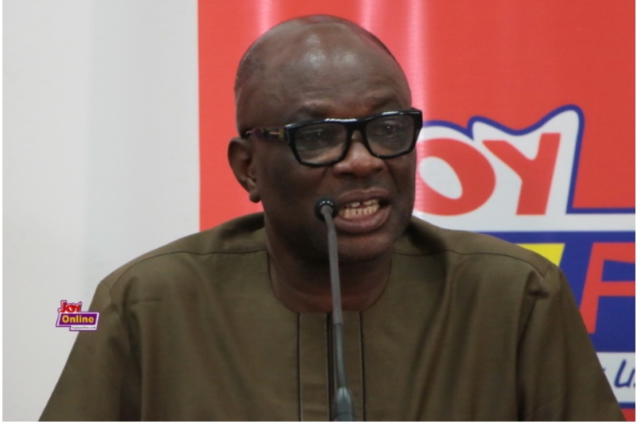The Ghana Union of Traders Association (GUTA) has called on government to consider pumping dollars from Ghana’s external reserves to arrest the depreciating cedi.
GUTA says its members’ businesses are struggling due to the rate of the cedi’s depreciation, which almost doubled within just a week to 14.21% in March, 2022.
Several factors, including perceived risks in the Ghanaian economy due to high-interest payments on borrowed funds and financial challenges within the economy, have been attributed to the rapid depreciation of the cedi.
Speaking on JoyNews’ PM Express on Tuesday, March 8, President of the Association, Dr Joseph Obeng, urged government to undertake pragmatic measures to salvage the worsening situation.
“We need to pump in more dollars. But, unfortunately, we don’t have any option because if you do not inspire confidence in the system now to suggest that there’s money available, people are going to buy and hoard this currency.
“People are going to trade in this currency, speculation is going to be rife enough, and it would be even worse. Foreign reserves are there for situations such as this; otherwise, what is the essence of foreign reserves?” he quizzed.
But an Associate Professor of Finance at the University of Ghana Business School (UGBS), Prof Godfred Bopkin, has indicated that if Ghana depletes parts of its foreign reserves, it would be forced to go to the International Monetary Fund (IMF) for support.
The finance expert opined that the only factor keeping Ghana from going to the IMF is the cedi depreciation.
“If you look at the template that Ghana sent to the IMF in 1965 under the watch of Dr Kwame Nkrumah, which is a reflection of what happens over the years. There’s only one thing left which is keeping us from going to the IMF right now, and that has to do with the depreciation of the cedi.”
“If Bank of Ghana decides to fight that, burn through our international reserves, and once the international reserves deplete to a certain level, you have no choice than to go to the IMF in an ambulance,” he explained.
Meanwhile, the World Bank has projected harsher times for Ghana’s economy.
This comes as the exchange rate continues to rise amidst inflation and increasing cost of living coupled with a rise in prices of petroleum products.
Government is already having a tough time rallying support for the controversial E-Levy, insisting it may not be able to settle some statutory obligations without the tax.
But the World Bank Country Director, Pierre Laporte, does not see any end in sight just yet.
“The situation is very difficult right now. Ghana faces a very tough road ahead to restore macro-sustainability,” he said.
Latest Stories
-
Spanish PM sorry for corruption scandal as opposition demands resignation
2 hours -
British man is only passenger to survive India plane crash
2 hours -
NSS ghost saga: Deputy AG Srem Sai says suspects willing to return over ¢560m and testify
2 hours -
NSS ghost names saga: Investigative report fingers 22 with over ¢560m set for recovery
3 hours -
GFA relieves Desmond Ofei as Black Satellites coach, focuses him on Black Stars
3 hours -
What does the Air India crash mean for Boeing?
3 hours -
US senator dragged out of LA immigration news conference
4 hours -
US orders 500,000 citizens of four countries to leave
4 hours -
Republic Day must be protected: A nation must not forget its true birth
4 hours -
Passion to Pouring: First luxury cocktail and music tasting experience debuts in Ho
4 hours -
Volta Okada Riders Association charts path for stronger leadership and legal recognition
4 hours -
Zoomlion contract: We don’t need a middleman – Manasseh urges assemblies to take control of sanitation
4 hours -
RFK Jr appoints new US vaccine advisers after sacking committee
5 hours -
Youth group urge Ghana Water Company to commission Damongo Water Project, condemns partisan delays
5 hours -
Sean ‘Diddy’ Combs’ lawyer makes his ex-girlfriend read loving texts until she cries
5 hours

